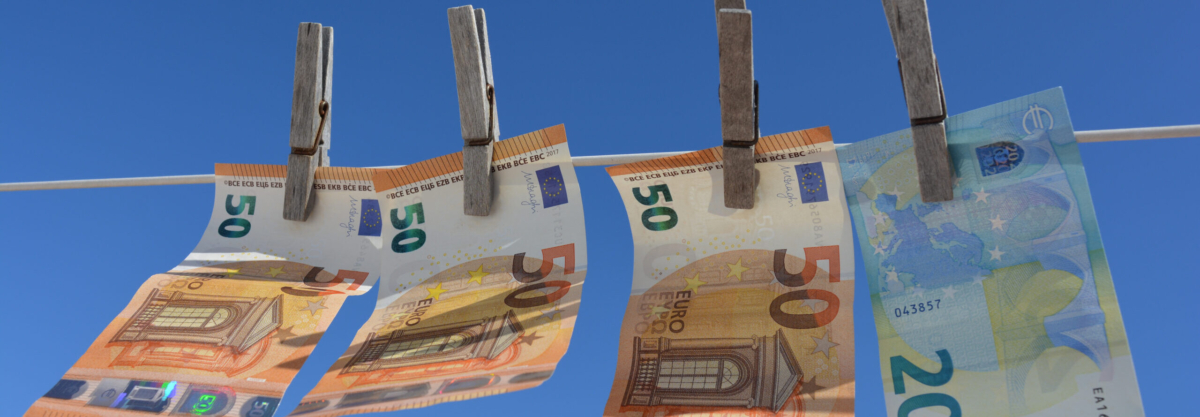On 28 March the European Parliament adopted its position on the latest EU anti-money laundering package. This package includes a proposal for a new Authority for Anti-Money Laundering (“Regulation regarding AMLA”), a revision of the existing anti-money laundering Directive (“6th AMLD”), and a new Regulation consisting of directly applicable rules for financial institutions and other so-called “obliged entities” (“AML Regulation”).
The Parliament’s position represents a significant step forward in the fight against dirty money. The text is more ambitious than the one put forward by the European Commission and the one adopted by the Council, and it acknowledges the crucial role played by civil society in combating corruption and dirty money.
The three institutions will now attempt to reach a compromise agreement on the proposed package of measures in trilogue negotiations.
These are the key elements of the Parliament’s position:
Fight against money laundering and terrorist financing
- The Parliament expanded the list of “obliged entities” to also include NFT (non-fungible token) platforms, crypto-asset providers, high-level professional football clubs, and luxury traders. Generally speaking, obliged entities are entities or individuals that are legally required to implement measures to prevent money laundering and terrorist financing. The Regulation already obliged credit and financial institutions, auditors, external accountants, tax advisors, debt collectors, notaries, and a number of other professionals in the financial and asset management sector, to follow customer due diligence procedures to prevent anti-money laundering and terrorist financing. We welcome the step by the European Parliament to expand more industries in its list.
- The Parliament proposes to ban so-called “golden passports”. These are EU passports that are sold by certain member states to wealthy third country nationals. MEPs also want to impose strict mandatory due diligence checks for golden visa schemes, which operate along the same lines. Golden passports long enabled third country kleptocrats, corrupt officials and criminals to launder and park their dirty money in the EU.
- MEPs also voted to give competent authorities access to information about goods and their owners in free trade zones in the EU. It has been proven that free trade zones are abused for illegal activities and it is certainly overdue to increase beneficial ownership transparency in these places.
Beneficial Ownership Information and Registers
- The Parliament voted to ensure access to beneficial ownership registers for journalists, civil society and other stakeholders fighting illicit financial flows. A beneficial ownership register is a central database that records information about the individuals or entities that ultimately own or control a legal entity. These registers have proved critical in efforts to uncover crime and corruption. They have also played a key role in the tracking of assets of sanctioned individuals, including in the context of Russia’s war of aggression against Ukraine. In November 2022, the Court of Justice of the EU ruled that the general public should no longer have unfettered access to these registers. Although the Court considered that civil society and the media have a “legitimate interest” in accessing beneficial ownership information, due to their role in the fight against money laundering and terrorist financing, it ruled that public access to beneficial ownership registers undermined data privacy rules.
- The proposal by the Parliament to register beneficial owners of all foreign entities owning land or real estate, and not just those buying real estate after the new rules go into effect, as proposed by the Commission, is another important step in the fight against illicit financial flows. Investing in real estate is one of the most commonly used methods for hiding illicit funds.
- The Parliament’s decision to start giving competent authorities access to information about the natural owners of high-value motor vehicles, aircraft and watercraft, which can also easily be used to hide proceeds of crime, is a major win.
- What is still missing is a European register for high-value goods such as fine art, antiques, and collectibles. This would allow law enforcement agencies to identify and freeze assets suspected of being obtained through criminal activity and help to increase international cooperation in the fight against financial crime.
- The Parliament lowered the threshold for mandatory disclosure of beneficial ownership information from 25 per cent ownership to 15, and even lower – to 5 per cent – for companies in the extractives sector or with an inherently high risk of money laundering. We consider this an important change in the legislative text, as it increases transparency and makes it harder to hide behind opaque ownership structures.
A new EU anti-money laundering authority – AMLA
- MEPs propose to give the new EU agency the power to draw up lists of high-risk jurisdictions with weak measures to combat illicit financial flows, akin to the black and grey lists of the OECD’s Financial Action Taskforce (FATF). Giving AMLA a greater role to draw up these lists, instead of, as now, the Council, would ensure a more objective assessment of high-risk countries. This would also encourage financial institutions to adopt a risk-based approach in their due diligence and strengthen the overall effectiveness of anti-money laundering measures.
- According to the Parliament, the new EU body should have direct oversight of 40 of the riskiest financial institutions, significantly more than initially proposed by the Commission. The Authority would have powers to monitor and support the implementation of sanctions, asset freezes and confiscation, allowing it to take a holistic approach to fighting crime and money laundering.
Council amendments appear more conservative than those of the Parliament and do not give civil society the same importance in combating illicit financial flows and corruption. In copying the CJEU’s disappointing beneficial owner ruling, the Council’s leaves room for uncertainty about the extent to which civil society will be able to access beneficial ownership information, just like the CJEU judgement itself. With the currently debated Directive, the Parliament and Council could codify civil society’s access to beneficial ownership information and reconcile it with privacy and security concerns. Unfortunately, the Council missed this opportunity. Disappointingly, it continues to be possible for criminals and kleptocrats to hide behind opaque ownership structures since the threshold for mandatory disclosure of beneficial ownership information remains at 25% for the Council. While the Parliament opted for a 5,000€ cash limit, the Council kept the Commission’s proposal of 10,000€. In light of the importance of cash in money laundering, tax evasion, and terrorist financing, lowering the cash limit is essential. The Council also foresees a less powerful AMLA that will mostly monitor developments and threats in the EU, while the Parliament makes the case for an EU agency that will have an important role in drawing up EU lists of high risk third countries and target individual financial institutions in third countries.
Negotiations between the three institutions are expected to start on the 11 May 2023 under the leadership of the Swedish Presidency but are unlikely to conclude before autumn. Russia’s war of aggression in Ukraine and the recent ruling by the CJEU have demonstrated the need to strengthen the EU’s anti-money laundering regime. It is now up to EU politicians to make sure they seize this opportunity.




